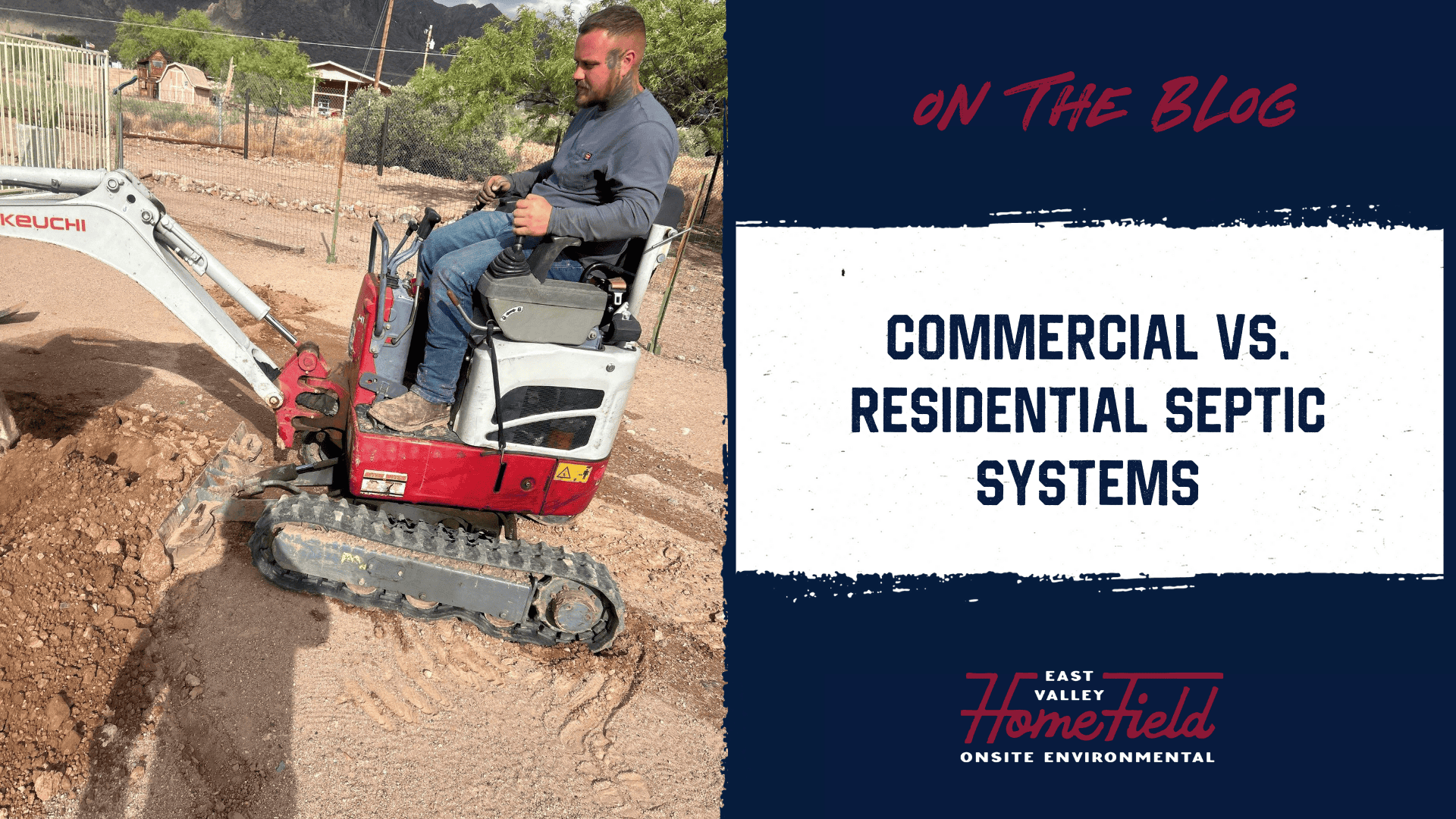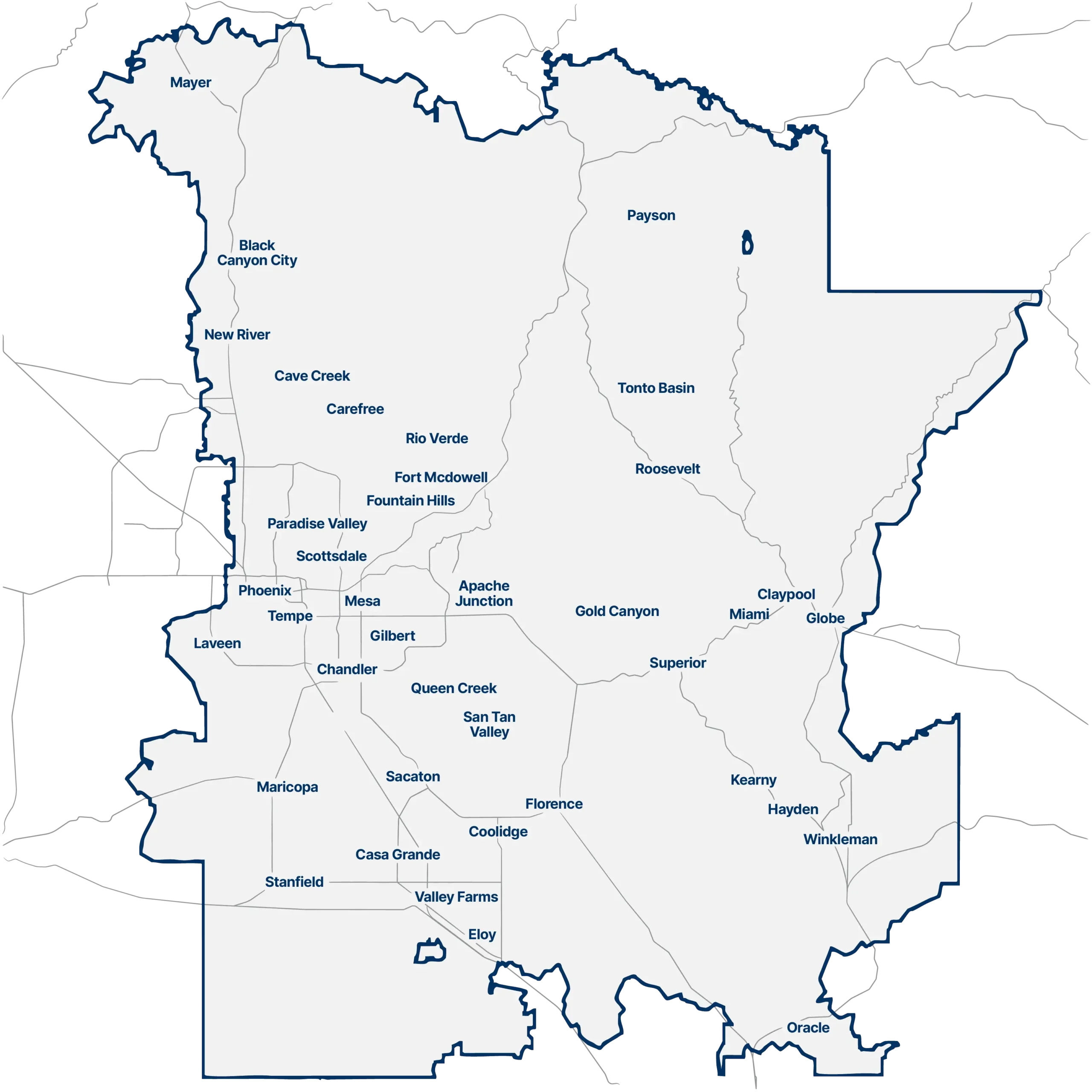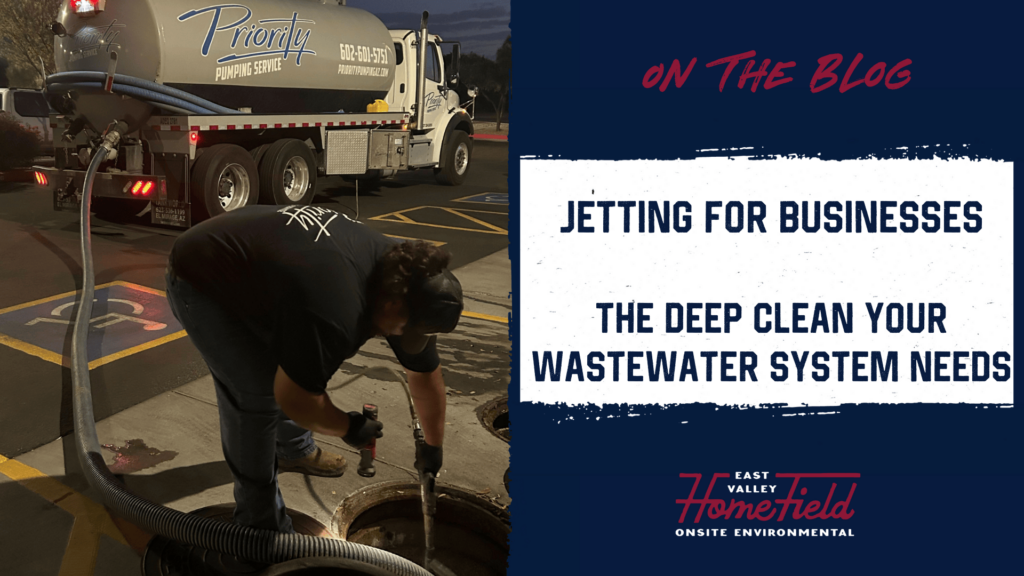
Commercial VS. Residential Septic Systems
September 19, 2025
When it comes to septic systems, the first thing that comes to mind for most people is a residential setup. However, commercial septic systems are a whole different ballgame. These systems handle much larger volumes of wastewater and must comply with stricter regulations and more complex maintenance routines. In this blog, we are breaking down the key differences between commercial and residential septic systems, helping you understand what sets them apart and why it matters.
System Size and Capacity
One of the most significant differences between commercial and residential septic systems is size and capacity. Residential systems typically serve single-family homes, handling waste from just a few individuals. Commercial systems, on the other hand, must accommodate much higher usage, often serving hundreds or even thousands of people. This means commercial systems have larger septic tanks, more extensive drainfields, and often, multiple tanks to manage the increased load.
System Design and Complexity
The design of commercial septic systems is far more complex than that of residential systems. A commercial system needs to account for the varying types and volumes of waste produced by different businesses, such as restaurants, hotels, or office buildings. This complexity requires more intricate plumbing, additional components like grease traps, and sometimes, advanced treatment technologies to ensure that wastewater is properly processed before it’s released back into the environment.
Regulatory Requirements
Commercial septic systems are subject to much stricter regulatory oversight compared to residential systems. These systems must meet rigorous state and local guidelines, which often include regular inspections, detailed documentation, and adherence to specific construction standards. Failing to comply with these regulations can result in hefty fines and operational shutdowns, making it crucial for business owners to stay on top of their system’s maintenance and legal requirements.
Septic System Maintenance and Monitoring
Residential systems typically need pumping every two to three years, depending on household size and water habits. With proper care and regular inspections, they can function efficiently for decades.
Commercial systems require more frequent attention. The higher volume of waste and potential for non-organic material build-up means that pumping, filter cleaning, and inspections often need to happen on a strict schedule. Waiting too long can lead to clogs, downtime, and even code violations.
Cost Considerations
Given their size, complexity, and regulatory demands, commercial septic systems are significantly more expensive to install, operate, and maintain than residential systems. However, this investment is crucial for businesses that rely on a properly functioning wastewater management system to avoid costly disruptions or penalties.
Understanding the differences between commercial and residential septic systems is essential for any business owner. A commercial system isn’t just a larger residential system. It’s a specialized setup that requires careful planning, regular maintenance, and adherence to strict regulations. By recognizing these differences, you can ensure that your commercial septic system operates efficiently and remains in compliance with all relevant laws.
At HomeField Onsite Environmental, we work with both homeowners and business owners across Arizona. Whether you’re managing a busy restaurant or living on a quiet property in the desert, knowing the difference between commercial and residential septic systems is the first step to avoiding backups, breakdowns, or fines.
Heidi
Heidi is the marketing and business development powerhouse at HomeField Onsite Environmental. She’s all about bringing the onsite wastewater world to life with knowledge, humor, and straight-up valuable insights—helping customers make the best decisions for their systems!
Sign Up For Our Newsletter

OUR SERVICE AREA
WE LOVE THE EAST VALLEY
We make the East Valley our home base, and proudly serve the cities and areas on this side of town, including:



